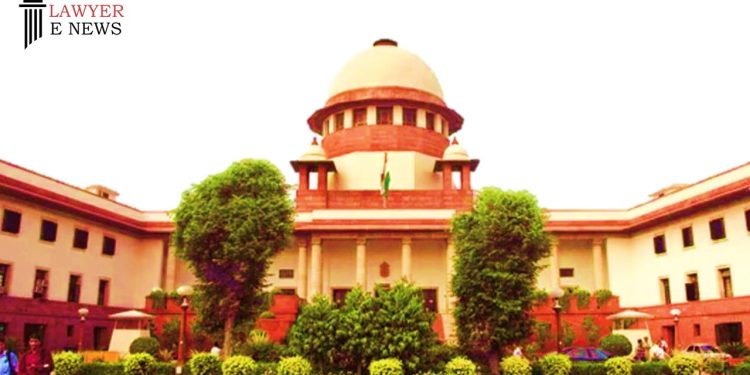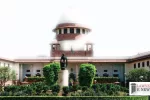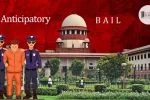SUBSEQUENT PURCHASERS CANNOT CHALLENGE LAPSING OF LAND ACQUISITION UNDER RIGHT TO FAIR COMPENSATION ACT: SUPREME COURT

In a significant ruling, the Supreme Court of India has held that subsequent purchasers of land have no standing to challenge the lapsing of land acquisition under the Right to Fair Compensation and Transparency in Land Acquisition, Rehabilitation and Resettlement Act, 2013. The judgment, delivered by Justice M.R. Shah, clarifies the legal position regarding the rights of subsequent purchasers in such cases.
The case, titled Delhi Development Authority v. Beena Gupta & Ors., involved a dispute over the acquisition of land in Village Mundaka by the Delhi Development Authority (DDA). The DDA sought to acquire a large tract of land, including a specific parcel measuring 1 Bigha and 2 Biswas. The subsequent purchaser, Beena Gupta, acquired the land after the initiation of the acquisition proceedings.
Gupta filed a writ petition before the High Court, arguing that the acquisition had lapsed under Section 24(2) of the Act due to non-payment of compensation. Surprisingly, the High Court ruled in favor of Gupta and declared the acquisition as lapsed.
However, the Supreme Court disagreed with the High Court’s decision. In its judgment, the Court observed, “The subsequent purchaser had no locus to challenge the acquisition and/or lapsing of the acquisition under the Act, 2013. Under the circumstances, the High Court has seriously erred in entertaining the writ petition.”
The Court further emphasized that the lapse of acquisition occurs only if possession of the land has not been taken and compensation has not been paid for five years or more before the Act came into force. It clarified that the mere non-deposit of compensation in court does not result in the lapsing of land acquisition proceedings.
Citing previous judgments, including the case of Shiv Kumar & Anr. v. Union of India & Ors., the Court concluded that the subsequent purchaser’s claim to challenge the acquisition or lapsing of the acquisition is legally untenable.
The judgment also referred to the case of Indore Development Authority v. Manoharlal and others, wherein the Supreme Court established that the mode of taking possession under the Land Acquisition Act, 1894, and Section 24(2) of the Act are distinct. Once possession has been taken, there is no lapse under Section 24(2).
With this ruling, the Supreme Court has settled the law concerning the rights of subsequent purchasers in land acquisition cases. The judgment reinforces the principle that subsequent purchasers cannot challenge the acquisition or lapsing of the acquisition under the Act.
The decision of the Supreme Court is expected to have far-reaching implications, providing clarity and legal certainty in land acquisition matters across the country.
Date of Decision: January 16, 2023
Delhi Development Authority vs Beena Gupta (D) Through LRS. & Ors.





